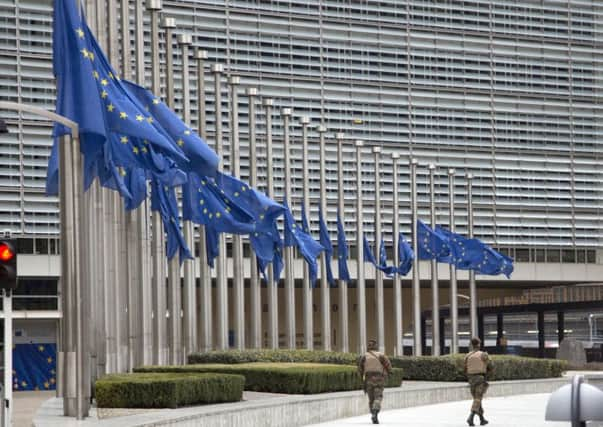EU membership '˜cost Northern Ireland £67M last year'


The country is a net contributor to the union and its receipts from Brussels are likely to fall further in the future, the Leave.EU lobby group alleged.
More powers over security, employment law, agriculture and the broader economy would result from an exit, according to a report published by the organisation of business and political figures on Tuesday.
Advertisement
Hide AdAdvertisement
Hide AdIt said: “Brexit offers the UK the chance to take control of its own destiny and Northern Ireland has the opportunity to play an enhanced role within a more confident UK as Stormont reclaims significant powers.”
The report said Northern Ireland’s share of the UK contribution in 2014 to Europe was approximately £500 million. It calculated the country received around £433 million in agricultural subsidies and structural development funds during 2014/15, leaving a net shortfall of approximately £67 million.
The document predicted: “This gap will widen as other countries receive a greater share of EU support.”
It said extra competencies which could accrue from an exit meant farmers could challenge restrictions, and Northern Ireland’s poor rating for global competitiveness in business could be addressed.
Advertisement
Hide AdAdvertisement
Hide Ad“If we leave the EU, Northern Ireland’s voice can be heard more clearly in the forums, such as Westminster, where decisions about our affairs will once again be made.”
It said the UK would assume complete responsibility for its borders and government would regain control over its own security.
The report said Northern Ireland’s economic future depended upon the ability of businesses to trade globally.
“Brexit has the potential to open the door for local companies to take a global approach, because we can be part of a UK that dismantles trade barriers with emerging economies.
“Leaving the EU offers the potential to cut red tape for Northern Ireland’s businesses and allow policymakers greater freedom to address problems around the economy.”